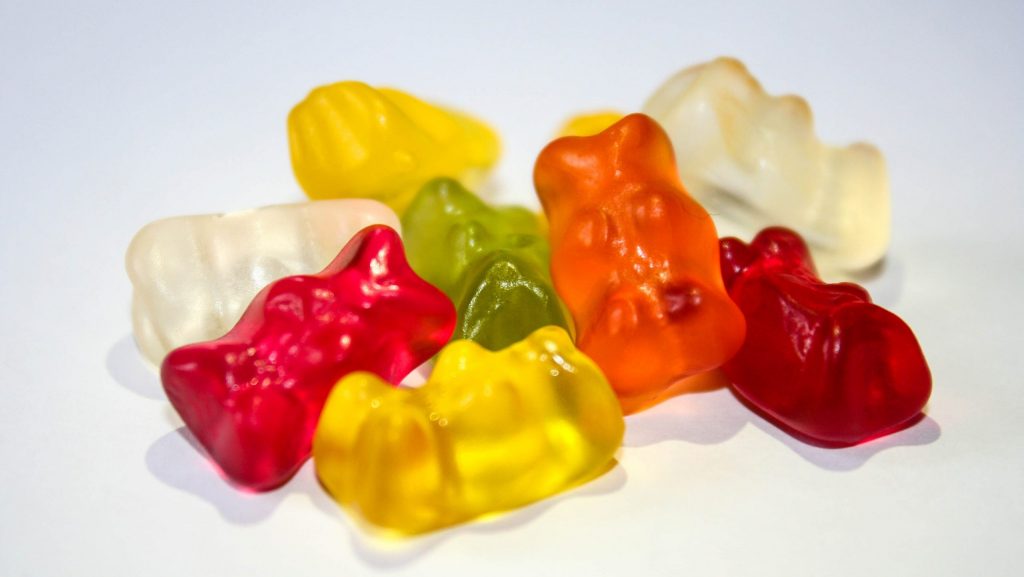Created Equal: The concerning rise of kids unintentionally consuming cannabis edibles
Created Equal May 21, 2024Cases of unintentional cannabis use by children ages 4 to 13 grew by 60% from 2020 to 2023, the Michigan Poison and Drug Information Center at Wayne State University reports.

Accidental marijuana poisonings among children have increased significantly since recreational use was legalized in Michigan six years ago.
On Tuesday’s episode of Created Equal, host Stephen Henderson spoke with Robyn Vincent, a reporter for Chalkbeat Detroit who recently wrote about the rise in cannabis poisonings in Detroit schools; and Dr. Varun Vohra, director of the Michigan Poison and Drug Information Center at Wayne State University, about the dangerous flip-side of the freedom that has come with legal marijuana use in Michigan.
Michigan law does not allow cannabis edibles to be shaped or labeled in a way that would appeal to minors. It also forbids packaging that can easily be confused with commercially sold candy. However from 2020 to 2022, the Michigan Poison Center recorded 801 incidents of cannabis toxicity among children ages 5 and younger, representing a nearly 75% increase of unintentional youth cannabis ingestion. In Vincent’s article, Vohra called the spike “worrisome and concerning.”
From 2020 to 2023, cases of unintentional cannabis use by children ages 4 to 13 grew by 60%, according to the poison center.
Earlier this month, Detroit public school officials sent a letter to Gov. Gretchen Whitmer and the Legislature asking them to address climbing numbers of incidents in which children as young as 4 have been involved in marijuana problems in schools.
“This school year alone, we have already faced 745 drug-related infractions as of last week,” the letter said.
District officials are imploring the Legislature to adopt additional safety measures, such as purchasing detection systems for vape pens and marijuana at the schools; requiring clearer labeling for cannabis edibles; and initiating a public awareness campaign to educate the community about securing edibles and keeping them away from children.
Subscribe to Created Equal on Apple Podcasts, Spotify, Google Podcasts, NPR.org or wherever you get your podcasts.
Guests:
Robyn Vincent is a reporter for Chalkbeat Detroit. Earlier this month, She spoke with Nikolai Vitti, superintendent of Detroit Public Schools, about the use of cannabis in schools and how it has become a disruption in the classroom.
“He also told me there were some recent incidents involving a second and a third grader,” Vincent said. “And any time kids that young are involved in an incident right in school that has to do with drugs, that really deepens the sense of urgency.”
Dr. Varun Vohra is the director of the Michigan Poison and Drug Information Center at Wayne State University. He says it is surprising how many people can get distracted and leave marijuana or edibles lying around in the presence of very curious children.
“These exploratory ingestions, they are unintentional, kids are enticed,” said Vohra. “They see something maybe that looks like candy, or something that they have seen before, but it’s not obviously that. Not using while children are around, designating a time when maybe the kids have gone to bed or they are away at a friend’s, making a time when they are not in sight as well, keeping them in a locked cabinet, again, very basic things.”
Listen to Created Equal with host Stephen Henderson weekdays from 9-10 a.m. ET on 101.9 WDET and streaming on-demand.
Trusted, accurate, up-to-date.
WDET strives to make our journalism accessible to everyone. As a public media institution, we maintain our journalistic integrity through independent support from readers like you. If you value WDET as your source of news, music and conversation, please make a gift today.
